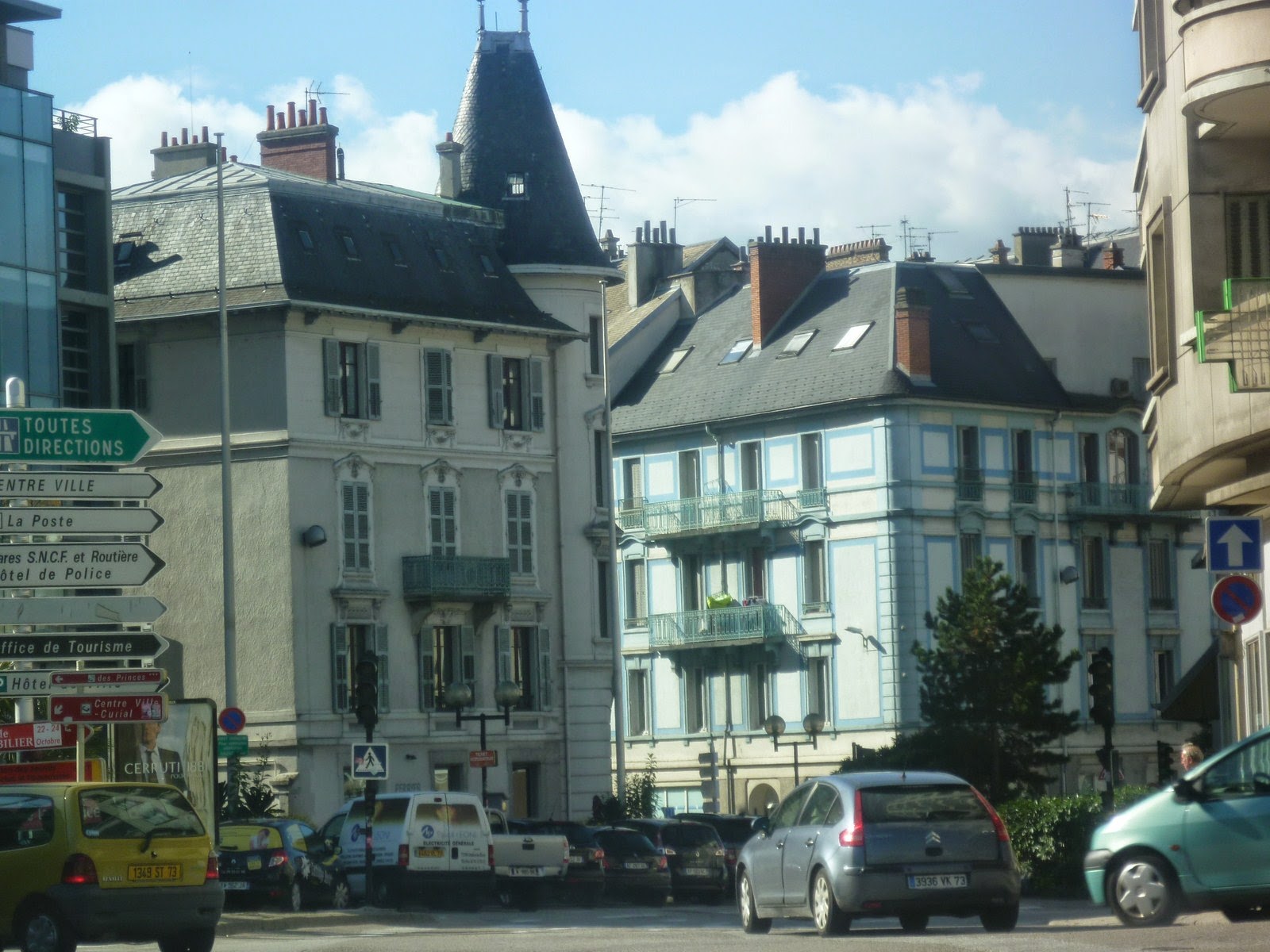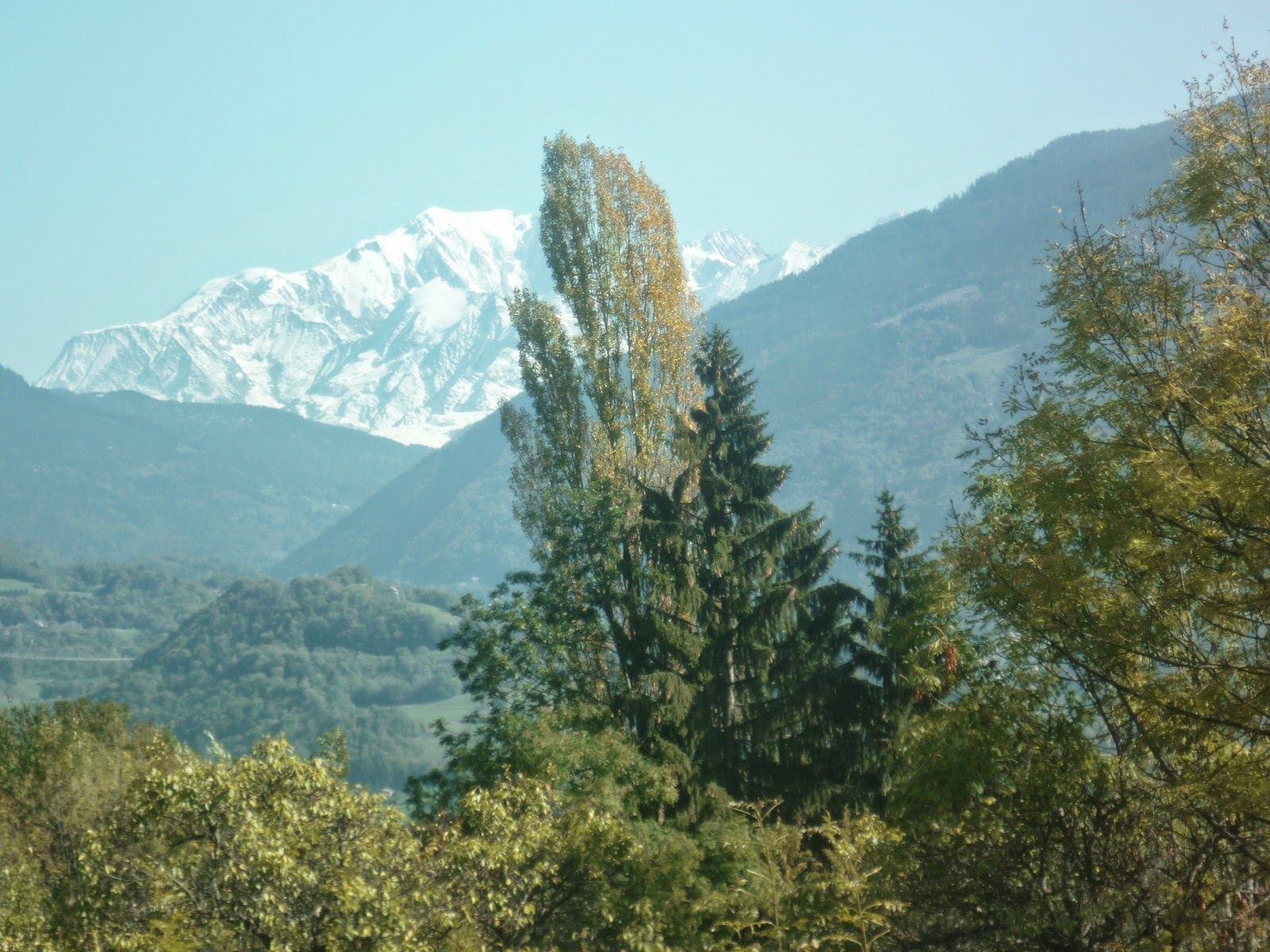Grenoble es prefectura del Departamento de
Isère en la Región Ródano-Alpes. Es de hecho la capital de los Alpes franceses.
Grenoble existe desde época romana, construida en la confluencia de los ríos
Isère y Drac. Tiene una antigua fortaleza accesible con un teleférico, a 476 m.
de altitud. Por su ubicación, tiene un microclima de temperaturas extremas
según sea verano o invierno, siendo unas muy altas y las otras muy bajas. Esto
se debe a que las montañas que circundan la ciudad forman una gran depresión, a
modo de valle. Los topónimos antiguos de la ciudad son Cularo y Gratianopolis. En
1349 el condado al que pertenecía Grenoble fue vendido a los reyes de Francia,
que incorporaron el territorio a la corona. A partir de 1788 el activismo en
Grenoble fue precursor de la Revolución Francesa, pues el cierre del Parlamento
local provocó el Día de los Azulejos, en que los vecinos lanzaron azulejos
contra los soldados, por dicho cierre. En 1925 Grenoble organizó una Expo
hidrológica que atrajo a un millón de personas durante 6 meses. Durante la
Segunda Guerra Mundial, Grenoble fue ocupada por el ejército italiano en 1942 y
por el ejército alemán en 1943; Grenoble fue liberada en 1944 por el ejército
americano. Grenoble fue sede olímpica de los Juegos del Invierno en 1968.
Actualmente Grenoble es capital tecnológica de Francia y una de las ciudades
más importantes del mundo en esta materia.
Grenoble is administrative prefecture of the Department
of Isère in the Rhone-Alpes region. It is indeed the capital of the French
Alps. Grenoble existed since Roman times, built at the confluence of the rivers
Drac and Isère. It has an ancient fortress accessible by cable car, at 476 m.
altitude. Because of its location, it has a microclimate of extreme
temperatures as summer or winter, being very high and the other way very low.
This is because the mountains that surround the city form a great depression,
as a valley. The ancient city names are Cularo and Gratianopolis. In 1349 the
county to which Grenoble belonged was sold to the kings of France, who entered
the territory to the Crown. From 1788 Grenoble activism was a precursor of the
French Revolution, as the closure of the local Parliament caused the Day of
Tiles: in that neighboring tiles fired at the soldiers, for the closure. In
1925 Grenoble organized a hydrological Expo and it attracted one million people
for six months. During World War II, Grenoble was occupied by the Italian army
in 1942 and by the German army in 1943; Grenoble was liberated in 1944 by the
US Army. Grenoble was hosting the Olympic Winter Games in 1968. Currently
Grenoble is technological capital of France and one of the most important
cities in the world in this field.





































































